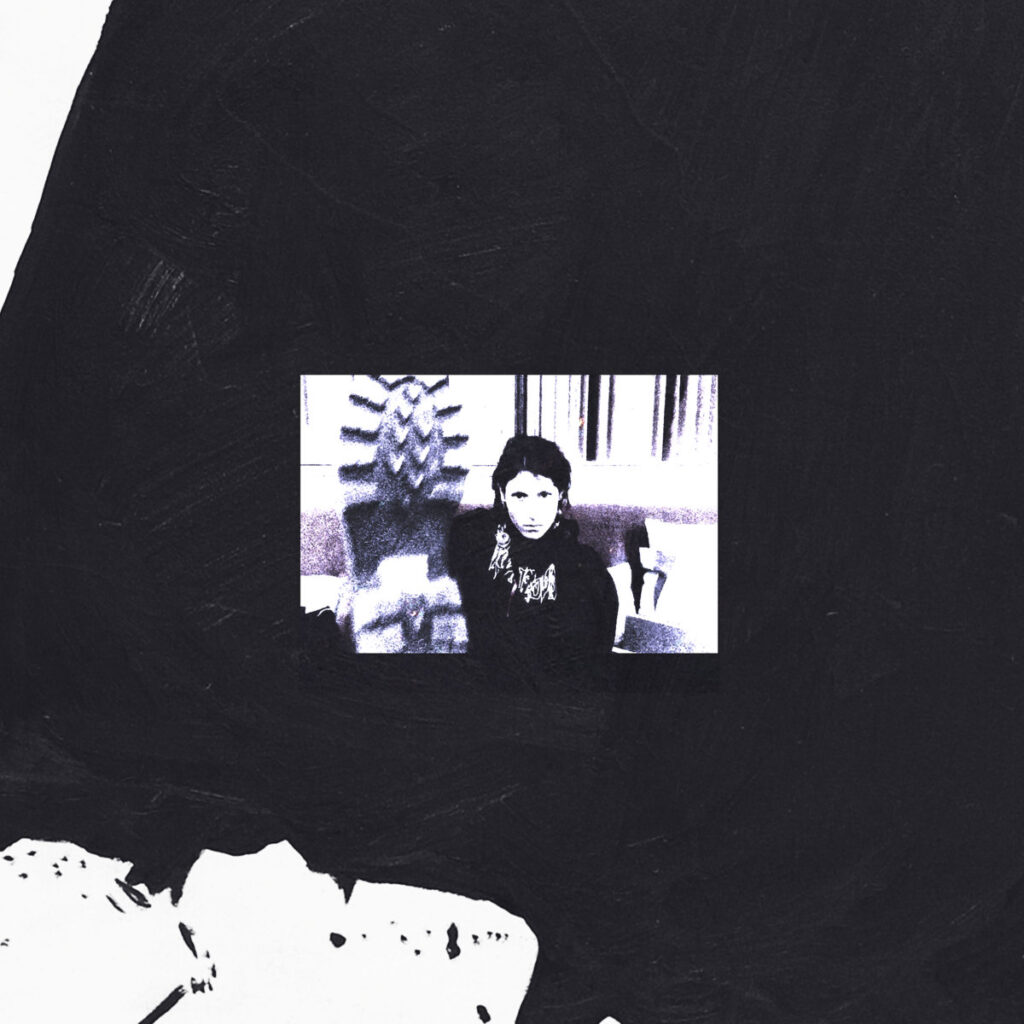


This year was a doozy. In the end, I take away what it took to get through it. From the angry to the soothing to the crushing to the comforting, here's the sounds that carried me through.
Honorable Mentions:
PinkPantheress, Heaven knows - A riveting album where each song possesses moments that can feel cinematic or evolutionary, with incredible highs and lows that don't lag too far behind (or for very long).
Earl Sweatshirt & The Alchemist, VOIR DIRE - One of rap's most in-shape and rigorous rhymers is in the zone, and knows just who to call to bring out his best.
Feist, Multitudes - In a state of meditation, Feist pens some of the most complex and forth-right writing you could find this year.
Veeze, Ganger - I will point you to "Rich No Duh" and forfeit the rest of my words here, thanks.
Alan Palomo, World Of Hassle - A three-dimensional soundscape that brings a different but equally interesting thrill with each song.
Olivia Rodrigo, GUTS - A real good laugh at the idea of a sophomore slump from one of the more impressive pop songwriters in recent memory.
Ragz Originale, BARE SUGAR - A sonic flood of confidence and personality, BARE SUGAR was neglected as one of the year’s most cohesive listens in the hip-hop/R&B arena.
The Japanese House, In The End It Always Does - A very considered songwriter and musician, Amber Bain is quietly observant with moments of overwhelming earnestness.
Anna St. Louis, In The Air - I wish I could feel the way this album sounds all the time - an eternal state of "Trace" would do me well.
Larry June & The Alchemist, The Great Escape - Between the two, being supremely cool and talented never sounded so easy.
The title of Olivia Dean's debut LP is deceiving to how pristine all aspects of the album are presented. She endears herself to the listener with each track on Messy: her careful writing, pull-you-in-a-little-closer voice, the frequent flares that compliment the moments of contemplative narrative. And it bears repeating, her voice - it's a voice that is hard to imagine feeling out of place anywhere, though it's best suited around pianos and live instrumentation; it's not fragile, it's gentle; it's not strong, it's alluring. She has the kind of voice (and personality to boot) that is deserving of a Boiler Room residency. It's evident that Dean finds great joy and pride in her music, determined to make the most of her talent with every performance. While a more straight-forward pop approach was likely in the cards, Messy feels like a pure-hearted attempt to continue to curate Dean's artistic repertoire. Unrestricted, it feels like she has room to breathe throughout the record; she takes ownership of each track in a way uncommon of most pop artists today. All of these ideals come to a head on the celebratory "Carmen" - while not quite a victory lap for herself, Dean's joyous recognition of where she's come from and where she's headed inspires even the most passive ears. It's nothing short of a pleasure to see her work unfold on Messy.
An odds-friendly favorite for Rookie of the Year, St Louis's Jordan Ward rose to fan-favorite status by making no compromises. Not conventional but also not necessarily innovative, Ward seems to have created a new variant of modern hip-hop/R&B artists. While genre classification is an argument to be had, I side with Ward as a hip-hop voice, not with the motive of diminishing the breadth of R&B but rather as a boast of rap's ability to leak and find itself puddled in a way that reflects other genres as much as itself. Brimming with charisma and a well-to-do approach, moreward (FORWARD) is light on its feet, moving at Ward's gliding pace without missing a beat. This particular title serves as the deluxe to initial release FORWARD, including bonus tracks from 6lack and Easton Fitz that continue to propel Ward's momentum. Soulful and grounded, moreward (FORWARD) has an elastic quality to not only its sound but its identity, practically ensuring the album to withstand the shape-shifting trends of the genre. In a year where rap lost some of its luster near the top, moreward (FORWARD) slots in as one of the year's premier rap albums.

At once contemplative and immediate, Tomorrow's Fire is as definitive of an album as you could find this year. Ella Williams has a firm grip on each track on the record, never deviating or losing focus in what plays as an utterly immersive 10-track collection. "Alley Light" holds an air of romance that is overshadowed by the stark darkness heard in the guitars echoing throughout; "Canyon" feels as vast as its title suggests, with Williams emphatically poetic in her performance; finale "Finally Rain" is off-handedly tender, similar in ilk to prior tracks but with a lifting of a weight otherwise present throughout. The writing and sound of Tomorrow's Fire is an incredible snapshot into the position Squirrel Flower finds herself now - potential be damned, she exists most prominently in the present.
Sabrina Teitelbaum, the 26-year-old artist native to LA, has a great voice. In the past, it has lent itself towards more pop-focused recordings, throwing its weight around with more vibrancy and enthusiasm. Her voice as Blondshell is even better - though her voice, in this instance, is in reference to her writing style rather than her performance. It's her dry, self-effacing sense of humor, sarcasm, turning of a phrase, and nail-on-the-head descriptors that establish Blondshell as a character and a vessel. In the doom and gloom of tracks like "Olympus" and "It Wasn't Love," you can almost hear the bags under her eyes, the chip on her shoulder, the dark cloud looming over her head.
When I wrote about this album at the halfway point of the year, I called Blondshell more of a cautionary tale for those in their 20's than a scared-straight testimony. The bonus tracks that arrived with the deluxe release of the album in July serve as an epilogue of sorts: "It Wasn't Love" is a mostly-sober reflection of a relationship that could have easily served as inspiration for original releases "Joiner" or "Kiss City"; "Street Rat" and "Cartoon Earthquake" mimic the beyond-self awareness that plagues the writing of earlier songs; "Tarmac 2" and "Kiss City (home demo)" re-frame the album in a way that plainly reveals Blondshell's insecurities - with no guitars or drums to mask emotions, it's as bare as we've seen her so far. While her vulnerability persists throughout the record, it's on these two re-imagined versions where Blondshell lets her guard down for good. To hear her sing the chorus of "Tarmac" - "Everything revolves around kissing and / When he's here / I'm alone" - in this bare-bones setting makes you painfully conscious of her feeling, as if you can feel the delicate gravitational pull of this orbit she's fallen victim to. Whether it's the devastating, knock-out punch one-liners littered throughout the tracklist or the nostalgically-appropriate grunge influences, Blondshell delivers some of the most exhilarating musical moments of the year on her not soon to be forgotten debut.
The chief critique (at least personally) surrounding Del Water Gap, the solo project of Samuel Holden Jaffe, as an artist is fair - he is derivative of his influences to a fault. I have framed him privately as a sort of toothless-The 1975: not quite as daring as lead man Matty Healy but just as self-serious. A quality the two share that makes them both successful in their varying degrees of ego is a commitment to the bit, so to say. There's few instances of Jaffe putting himself in the other's shoes on this album, and while centering one's self isn't necessarily a sin, it opposes Jaffe's perception of himself. This flaw is certainly not fatal to his craft, as the songs on I Miss You Already + I Haven't Left Yet (I mean, the title pretty much makes my point for me!) are overwhelmingly beguiling, with Jaffe's character casted as dangerous enough to be advised against but innocent enough to insinuate you won't be hurt too bad. For the track's of IMYA+IHLY to persevere through Jaffe's character flaws is a feat of itself, and makes it one of the more curiously satisfying albums of the year.
On their first album in 9 years, Blonde Redhead mesmerizes more than anything on their transcendent release Sit Down For Dinner. Keeping in tradition with their shoegaze roots, the atmosphere of the record can envelop you to a point you neglect the poignant writing scattered throughout. "Have you seen, have you heard of a love that has no crime?" goes the final words of lead track "Snowman," properly setting the table for the emotional demolition in tow. The effective climax of the album comes in it's two-part title track, drawn from a phrase authored by Joan Didion in The Year of Magical Thinking. "I know you're tired of living / But the dying is not so easy," begins vocalist Kazu Makino, but the real blow is yet to come: "But for some, it comes in an instant / You sit down for dinner / And the life as you know it ends / No pity," the final words a devastating gut punch given all the track's circumstances. Though serviceable as ambiance music, Sit Down For Dinner transforms when given the proper investment; you'd be hard-pressed to find many more albums that are harder to swallow emotionally than Blonde Redhead's latest.
Throughout Calico, Ryan Beatty meets you at your most intimate moments, memories, and thoughts. From the curious weight of the piano that introduces “Ribbons” to the hollow guitar of “Little Faith,” Beatty meets the music with all he has. His incessant pleas to “have a little faith” on the album’s closing track only reinforce the painful memories recounted on those that came before, the cruel savior that is hope blossoming before him. Swallow your pride as you dutifully serve your fate, he seems to be saying. Elsewhere, he is overwhelmingly endearing in his songwriting - single "White Teeth" pierces the skin with its pointed sensibility. Across the record, Beatty is fragile but not brittle; there are moments where the song takes the form of a hymn, not necessarily in structure but in religious divinity. Listen, if you will, to the character of the guitar strings of "Bruises Off The Peach," or the rich textures in Beatty's voice on "Cinnamon Bread." Calico sounds like the best kind of friend, the one you share the longest history and most sincere bond with. A shoulder to lean on and a hand to hold, Beatty’s third album reminds us why we listen in the first place.

Likely the top contributor to curbing my cynicism around country music, Time Ain't Accidental is eye-opening on a couple fronts. For its author, its an unashamedly personal account of love and self-discovery, not claiming to be anything more than Williamson's heartfelt tragedies she's come to accept as treasures. There's an absurd amount of faith baked into the album - as is suggested in its title - that is truly contagious, whether that be a symptom of Williamson's transparent lyrics and vocals or the banjo that treads optimistically throughout. "The difference between us is when I sing it, I really mean it," she spews at a past love on "Chasing Spirits," her words delivered bravely and with contempt. It's a beautiful trick that Williamson is able to pull off in making the personal feel universal, telling her own stories for the listener to hear them as their own. You get the feeling that while singing her heart out, Williamson is staring into the horizon beyond, the sun certainly rising rather than setting.
“I have this weird fear of like, if I don’t put this music out, someone 20 years from now isn’t going to be able to hear it," Zach Bryan told the New York Times in 2022, attempting to explain the sheer volume of music he's released in recent years, best encapsulated by the 34-track album American Heartbreak. "If some kid needs this in 40 years and he’s 16, he’s sitting in his room, what if I didn’t put out ‘Quiet, Heavy Dreams’? What if that’s his favorite song of all time?” From this quote grew a share of understanding between myself and Bryan, who I was actively disinterested in prior to reading the profile. It was more arrogance than ignorance that encouraged me to deflect his work, but in finally giving him a prejudice-free listen with the release of his self-titled album this year, I was able to appreciate his inherent emotionality, and dedication to the craft. His insecurities may have gotten the best of him again, as the album is perhaps bloated in some aspects, but his intentions are true. It's hard to walk away from tracks like "Ticking" and "Jake's Piano - Long Island" and not feel more attached to Bryan. Maybe the biggest compliment you can give to an artist is to admit their audience is well-earned; Zach Bryan survives on its merit, deserving of every listen.
A curious case given his sudden and somewhat odd rise to notoriety, Bakar writes off the "one hit wonder" title with Halo. There are ceremonious highs on the album, as Bakar's simple but effective writing is bolstered by his uncanny knack for melody. After catching ears with "Hell N Back," he became an artist who burrows, further ingraining his voice and off-kilter alt-pop with the likes of "Facts_Situations," "Right Here, For Now," and "I'm Done," among others. On the topic of "Hell N Back," which peaked at number 1 on several international charts, Bakar reinforces the track with a Summer Walker feature on the album, an equally surprising and effective choice that proves Bakar's eptitude when it comes to finding the right fit for him. When it mattered the most, Bakar stuck to his guns, and he's rewarded with one of the year's most inspiring albums.
I went into this Mitski album blind, ashamedly oblivious to her past work, mostly on account of my own negligence. Still, in this unfamiliarity, The Land Is Inhospitable and So Are We felt like being held by a familiar silhouette. Her embrace is empathetic, snug and welcomed, measured and natural. Belying the virality of "My Love Mine All Mine" are equally delicate tracks that revel in the burden of herself, namely "I Don't Like My Mind," "When Memories Snow," and "The Deal." Yet still there are moments that rest adjacently to the affairs of "My Love Mine All Mine": the metaphor that drives "I'm Your Man" sits comfortably among some of Mitski's most devastating writing to date, while the light pours in on the helplessly romantic "Heaven." While it's 32 minute runtime may feel brisk, TLIIASAW is damp with the condensation of Mitski's vulnerabilities, an exhaustive listen that continues to insist upon it's listener to press play once more and feel it all again, at full force.
The way Indigo De Souza captures the human condition is apparent in the title of her standout album from April of this year: she approaches the topic with candor, oscillating fluidly in her attitude towards her surroundings. Her voice creates an ambiguity that is enthralling - her quick-draw breaths and liberated expression leave room for interpretation. It's often difficult to decipher if she is on the brink of laughing or crying. The best example of this dichotomy comes on "You Can Be Mean," where Indigo gives permission for her object of affection to mistreat her: "You can be a dick to me / It's what I'm used to," she bellows, drawing out the final lyric and releasing it wildly. While her voice is seemingly tinged with humor, you wonder if she's in on the joke only for the added benefit of self-depreciation. At other times, her anxieties are presented genuinely: "Parking Lot" is an enlivened account of enduring a crisis at the grocery store, while "Younger and Dumber" closes the album on the note of a ballad, stripping away all facades and room for interpretation as Indigo shares clear-eyed reflections without reaching answers indicative of closure. This is life as we know it, as Indigo is supremely aware: "I don't have answers, no one does / I've been finding comfort in that."
Let's hear it for the outsiders! The Asheville, North Carolina outfit reaps praise on their most expansive, deliberate statement yet in Rat Saw God. The raucous electricity of the album left me paralyzed upon early listens, head spinning and internal compass gone awry. Once I got my wits about me, there was little I could do to shake it - the gothic pageantry of the music measures in at epic, perhaps no more evident than on the rustic "Bull Believer," with a finish you have to hear to believe. And still there are moments that verge on tender, namely "Formula One" and "Chosen to Deserve," the latter so genuine in its intent you may not realize the horrors at play. And these horrors are hard to ignore - or, rather, resist, given how compellingly they're delivered. Across Rat Saw God, Karly Hartzman and the crew give their all to prove their lyrics true: "Nothing will ever be as vivid as the darkest time of my life," the lead singer drawls on "What's So Funny," continuing, "Suddenly it's a tragic story / But that's what's so funny." Holding together the whole of the album is a sense of serenity, as is captured in the record's final scene: a TV in the gas pump, blaring into the dark, not giving a damn who is there to listen.
For my money the most fully-formed album of the year, Caroline Polachek's magnum opus is pedal-to-the-metal from its opening moments. Her howling to open Desire, I Want To Turn Into You boldly announces her presence, and she is only more firmly imprinted on the tracks to come. To commentate on this album is mostly about how it makes the listener feel: it feels victorious, rapturous, awakened, alive. Polachek shape-shifts, metamorphosizes, and all-around dazzles with each passing second - for all there seems there is to say about Desire, words cannot do the justice afforded by a listen. To list the collection of genres at play seems obsolete considering their application; genre is at Polachek's discretion to fit into her style, not the other way around. An absolute apex of an album, Desire and all of its forms transcend the here and now.

In an interview earlier this year, friend and admirer Blondshell offered a quote on what she appreciates most about Samia's music: "In (Samia's) writing, she sees a lot of beauty around her and she writes about it so specifically." It's a pointed compliment that is well-paid, a truth that speaks best to the most redeeming qualities of Samia's work. Honey almost plays more like a novel than an album, weaving a narrative together somewhat disjointedly but to profound results. The album is unpredictably fun at times, namely on tracks "Charm You" and "Honey," which also sets the listener up for quite the whiplash in transitioning musically and emotionally from "Breathing Song" to the aforementioned titular track. A whole-hearted exploration of Samia's conscience, its appropriate to feel invasive as a listener at times. In the end, it's for everyone's benefit to have been on this journey Samia calls Honey; after getting past these insecurities, we hope to take Samia at her own words, "To me, it was a good time."
It's hard to know where to begin with feeble little horse. From track one on, the Pittsburgh band maintains a nonchalant ease that somehow finds its way to charisma. "I know you want me, freak," goes the opening line of the album; "Your smile's like lines in the concrete," vocalist Lydia Slocum deadpans later on, in her monotonous delivery that is her standard. A notable exception to Slocum's indifferent tone comes on the twiddle-y "Heaven," who's sudden turn to guitar uprising midway through the song hits a nerve for Slocum that provides Girl with Fish's most dynamic moment - if you weren't listening closely enough before, she's demanding you hear her now. Don't let her seemingly unenthusiastic approach fool you, as the writing is on par with the year's best and sustained across all tracks. The album is lean but muscular when it comes down to it - the band isn't afraid to flex and get gritty if need be. Despite rumors of contentions amid members, the group has uncanny chemistry and complimentary visions that make Girl with Fish hard to take off repeat.
I wrote about MJ Lenderman's Boat Songs on last year's music list, and while most of the tracks on that album appear again on his live recording And The Wind (Live and Loose!), the songs in this context usurp their prior release. The live album as a whole arrives as the perfect medium for Lenderman's traits as an artist to shine through: his rugged voice has an anatomy to it, and you can hear how pointed his elbows and joints are; his voice is lanky and his writing is wiry. It's incredible to me how much more I have to say about this music that I've been listening to for over a year, but in this instance, I'll take advice from Lenderman himself: “The less people hear me talk, the more they can project on me or think I’m a smart guy.”

The passion project of producer and professional entertainer Rory proves worth the wait - the cast of voices and personalities on his debut album are the product of well-considered curation, a steadfast belief in concept that pays dividends. Whether unheralded talent like Aáyanna and Hablot Brown or proven commodities the likes of James Fauntleroy and Ari Lennox, Rory knows just the right setting to facilitate excellence. I Thought It'd Be Different is much more than the sum of it's plentiful, complimentary parts, a cozy album that leaves more proven than doubted. For any that know Rory's story, you wouldn't envision it being any different.
A bit overwhelmed with the amount of coverage boygenius collected around their release and perhaps more intimidated by the comprehensive criticism around the music, I chose a more unconventional medium to review the record earlier this year. Revisiting months later, their star rising even more than it had during their avalanche in March, it's hard to mention the year in music and omit boygenius. Their prominence is merit-based as much as it is idea-based - sure, a supergroup of trend-bucking singer-songwriters firm in their sense of group sounds cool, but it's another thing for the music to serve as proof of concept. There's strength, there's range, there's solemn devastation, and there's unconditional commitment embedded into the record; even in it's widespread acclaim, there doesn't seem enough words to express the album's brilliance.
Contrary to popular belief among unsuspecting patrons I've shared the work of 100 gecs with, this is not a bit - I am an agent of chaos in only the spirit of 100 gecs. The hyper-pop duo of Dylan Brady and Laura Les provide what is likely the most outrageous listen you'll have this...year? Decade? Lifetime? They are the sonic representation of anarchy, and it's impossible not to crack a smile or let out a laugh when experiencing the album existentially. The same formula that produced 2020's 1,000 gecs is at play here, scaled 10 fold: you’re sure to register a visceral reaction of some sort upon pressing play. Perhaps the best summation of 100 gecs as a band worth listening to comes from NYT critic Lindsay Zoladz, who professes that 100 gecs gives smart people the license to be stupid. Outrageous, mind-numbing, sensational, and epiphanous, to embrace the madness is the biggest favor you can do for yourself.
Queuing up Girl In The Half Pearl leads to losing sense of time and place - "I'm too young for the world's big problems / Just let me be free," she pleads to end the opening track. She takes full advantage of this freedom in the tracks to come, asking rhetorical questions with no intent of answering them herself, psychedelically moving through the free-flowing scenes of her mind, perfectly comfortable in the echo chamber of her imagination. Lush and sensual, her flavor of R&B is tart: biting yet surfaceless, cutting-edge ("HowTheyLikeMe!") and slightly jaded ("Wild Animals"). In 17 songs across 41 minutes, Liv.e is exactly what you'd hope: expansive, compelling, and at times daring, a breath of helium-polluted air to a genre ripe with innovation.
Perhaps the unsung pop album of the year, Troye Sivan's Something To Give Each Other boasts a welcome dimensionality, surprisingly as deep as it is wide. The album's pulse certainly suggests life, and Sivan is living it to the fullest - unconstrained euphoria on "Rush," desperation for refunded emotionality on "Still Got It," the unapologetic lust that populates "Got Me Started." The imagery of the album is in it's sound - it's easy to imagine the settings these songs take place in, and where they lead to afterwards. STGEO feels crafted in a way that Sivan's peers wouldn't bother to put in the effort for. A statement piece for Sivan as an artist, it's hard to turn your back on him with how much he has to offer.
Not all albums necessitate context, but in the case of Javelin, it is essential. Dedicated to his partner who passed away in April 2023, there's an emotional weight bearing on each lyric and breath Stevens offers. With this perspective, your heart breaks a million times over across the record, though no moment is quite as shattering as the devastating "Will Anybody Ever Love Me?" One final blow comes in Stevens' cover of "There's A World" to end the album not with a bang but a whimper - an exhausted, sympathetic sigh is the only way to leave in the wake of Javelin. The juxtaposition of strength and weakness is jarring, with Stevens not convinced of security in these songs but wearily searching.
And for my last trick, I leave you with the review at The Line of Best Fit, for which Why Does The Earth Give Us People To Love was recognized as the number one album of the year. My words and perspective would only echo those of writer Sophie Leight Walker's, or so I can only hope.
Warning: Undefined array key "preview" in /home/untitl11/public_html/wp-content/plugins/oxygen/component-framework/components/classes/comments-list.class.php on line 102